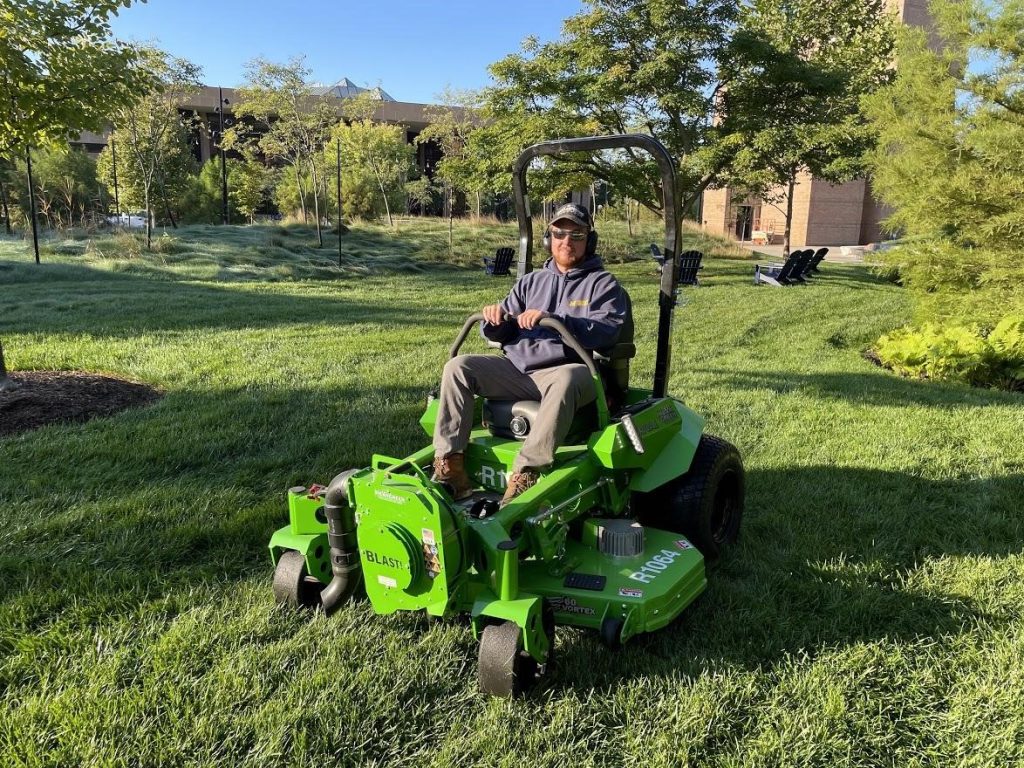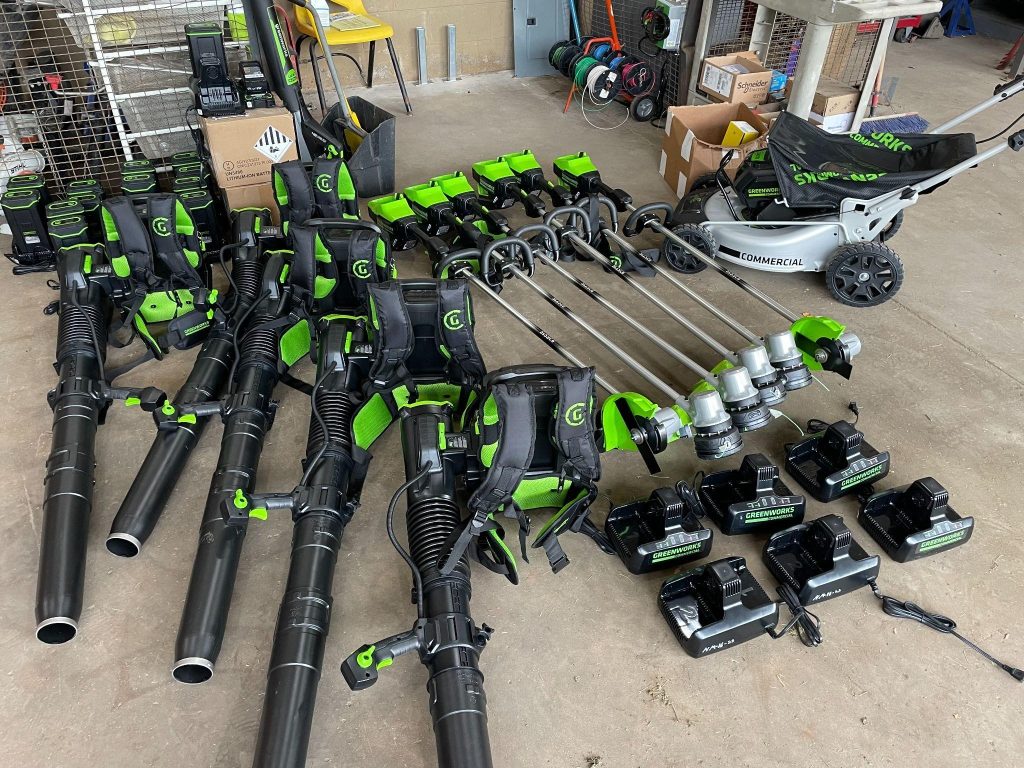You’re walking through the Diag enjoying green grass, colorful flowers, warm sun…but then a smelly lawnmower roars by, diminishing your enjoyment of this iconic campus scene.
Not anymore!
U-M Grounds Services has proudly adopted battery-powered lawn equipment to improve operations and support the university’s carbon neutrality goals. More than 80% of all routine landscaping activities on campus will be performed by battery-powered equipment.

The new equipment is cleaner, quieter, better for the environment, and more pleasant to use.
The move comes after years of investigating options for transitioning some or all of the landscaping equipment to battery-powered equipment. “We had been tinkering with battery-powered equipment for a long time, but in many cases, the batteries just didn’t last long enough or were too heavy,” said Rob Doletzky, landscape and grounds manager. “The technology has come a long way.”

Grounds has switched from gas to battery power for any equipment that isn’t used for snow removal, which includes all hand equipment (string trimmers, sidewalk edgers, blowers, hedge trimmers, and chainsaws) and about half of the mowing fleet.

Advantages to battery-powered equipment include:
- Efficiency – near elimination of maintenance and machine downtime, which previously included greasing daily, oil changes, belt changes, rebuilding of carburetors, and routine wear and tear
- Sustainability – charged from campus power, which is projected to include 100% renewable purchased electricity by 2025
- Quieter to operate – better for the operator as well as the campus community
“The battery equipment has been surprisingly easy to transition to,” said groundskeeper Tom Bonnee. “The mowers have some nice features, very quiet, smooth to use, and are very good on sloped terrain. The battery life is lasting a lot longer than we expected.”
This $492,000 initiative has an estimated payback in maintenance and fuel savings in 6-8 years. Operators and the campus community are already reaping the rewards of cleaner, quieter landscaping work.
Written by Katrina Folsom

